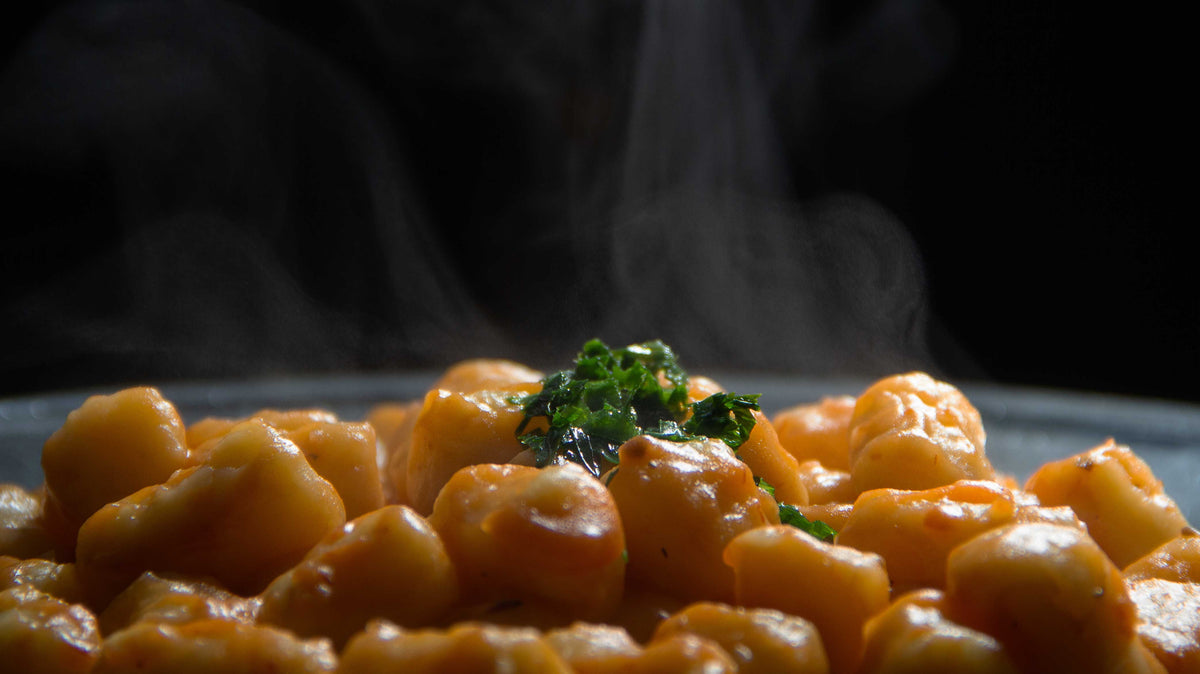Carb Overload: What Happens If You Eat Too Many Carbs

Athletes should already know carbs aren’t the enemy they’re often made out to be. Eating carbs in moderation has been studied to make a positive difference in your health and longevity. And research supports that “carb loading” — eating carbs (fruits and vegetables among them) pre-race and while training — can benefit endurance athletes. But eating too many carbs (or the wrong kind) may not help your performance, and your body may feel the consequences.
“When done right, carb loading can have a positive impact on endurance events and help athletes compete for a longer duration,” Hillary Pride, RDN, LD, NASM-CPT, explains. “We store carbohydrates as energy in the form of glycogen, mainly in our liver and muscle cells."
Related: How to Choose the Right Carbs for the Right Race
When you’re exercising for well over an hour, you will likely use up all of the glycogen and your energy might start to taper off, research finds.
How Many Grams of Carbohydrates Should Athletes Consume?
Loading up on carbs — even moderate amounts of refined carbs like pasta and bread — in the few days before a big athletic event may ensure that you have enough glycogen to burn up during the race. How many carbs are enough? Aim for 3.5 to 5 grams of carbs per pound of body weight every day for one to three days before your endurance event. Don’t push it too much over that.
“Eating all of the carbs isn’t going to help you hit any PRs,” Pride says.
The type of carbs that you eat matter, too.
Related: Why Eating Whole Grains Can Make You Feel Better Mentally and Physically
“Whole plant sources of carbohydrates are not only clean, easy-to-use fuel, but they also help with recovery and performance acutely and over time,” Julieanna Hever, MS, RD, CPT, author of Plant-Based Nutrition (Idiot's Guide) and The Healthspan Solution, says.
Go for pasta made with lentils, chickpeas, or edamame, or spiralized zucchini or squash noodles instead of white flour pasta, Pride says. Or, swap out half of your regular pasta for a veggie or legume-based option. To boost both your energy and fiber consumption, focus on whole grains, such as farro and barley.
How do you know if you’re carb overloading? Watch out for these red flags.
Too Many Carbs? 4 Signs to Look Out For
1. Unwanted Fat Gain
Unbridled carb loading can lead to scale creep and sluggishness, among other problems, research finds, and there’s no “athlete pass” around that. Excess calories in any macronutrient can lead to weight gain.
“We don’t have an infinite capacity for storing glycogen, so trying to eat more carbs for energy may lead to storing those extra carbs as fat,” Pride says.
Reserve carb-loading for long-distance biking and running (we’re talking over 90 minutes). If you’re scarfing carbs in anticipation of shorter stints, you might feel a food coma-like sluggishness when you train.
Related: These Are the Best and Worst Carbs to Eat on Race Day
It takes trial and error to learn the optimal amount of carbs your body needs to fuel a big race, so tune in. When you feel yourself flagging during an intense training session or in the midst of a race, consider what you ate and when, Pride says.
“You may need to follow a lower-carb meal plan during lighter training days and increase your carb intake to match heavy training or competition,” she explains.
2. Constipation
By favoring refined carbs and skimping on whole grains, you may not be getting enough fiber, which studies show is essential to maintaining a healthy gut microbiome, and keeping things moving.
“Lower-fiber carbs may lessen stomach upset during events, but consuming a lot of refined carbs like white bread and pasta can mean you are missing out on key nutrients found in whole grains, like fiber, B-vitamins, and many minerals,” Pride says.
That lack of fiber can lead to constipation and related GI discomfort.
3. Gastrointestinal Discomfort or Gut Rot
Like eating too much of anything else, overdoing it on carbs can cause indigestion, bloating, and cramps, Heaver says. That's definitely not what you want on race day. Again, listening to your body and tweaking your meal plan accordingly is essential.
Related:
4. Chronic Inflammation
Gluten in particular, which is present in most breads, pastas, crackers, and other processed foods, is a known culprit of chronic inflammation, an immune response in the gut that can trigger conditions like asthma, inflammatory bowel disease, and autoimmune diseases such as lupus and rheumatoid arthritis. Studies show that there’s no reason to eliminate gluten completely if you don’t have an intolerance to it, but it’s worth keeping your gluten consumption in check so you don’t suffer down the line.





